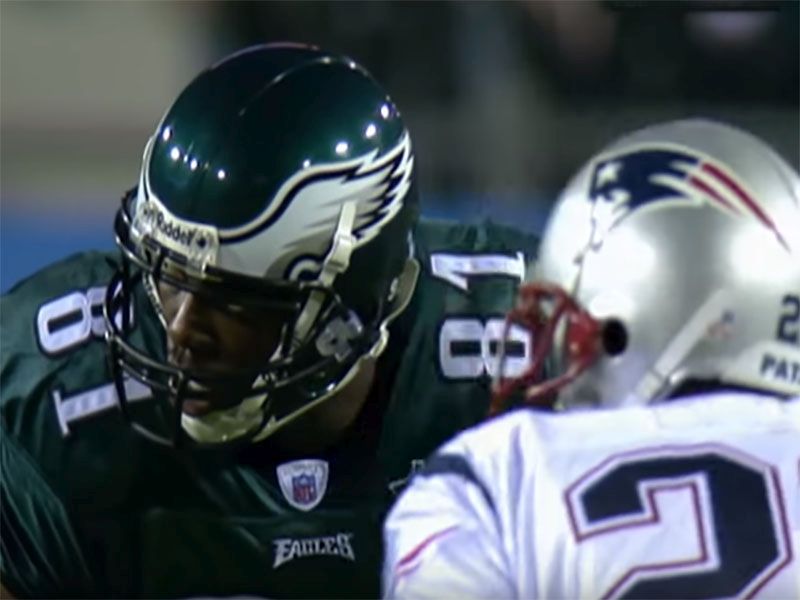Former NFL Players Have Higher Odds for Dangerous A-Fib
By Amy NortonHealthDay Reporter

WEDNESDAY, July 24, 2019 (HealthDay News) -- Former pro football players typically have healthier hearts than the average Joe -- except when it comes to a type of heart rhythm disturbance, a new study suggests.
Researchers found that former NFL players had a nearly six times higher rate of atrial fibrillation (a-fib), versus other men their age. The condition was present in 5% of 460 former players, versus 0.5% of nonathletes.
The reasons are unclear, but the researchers speculate on one potential explanation: the athletes' years of intense strength training.
That might sound counterintuitive. But the study is not the first to uncover a heightened risk of a-fib in elite athletes. Previous ones have found that people who spent years in certain endurance sports -- like long-distance running and cycling -- are more likely to have a-fib than sedentary people their age.
No one, however, is trying to scare people away from physical activity.
"A sedentary lifestyle increases your risk of [a-fib], and moderate exercise will reduce that risk," said Dr. Dermot Phelan, the senior researcher on the study.
And elite athletes certainly benefit from their high levels of cardiovascular fitness, stressed Phelan, who directs the Sports Cardiology Center at the Cleveland Clinic.
"Athletes have a longer life expectancy," he said. And that's, in part, because they have a reduced risk of dying from heart disease or stroke.
However, a-fib is different from coronary heart disease, the top killer of Americans. Coronary heart disease is caused by a buildup of fatty "plaques" in the arteries. A-fib stems from a problem in the heart's electrical activity; it causes the atria -- the heart's upper chambers -- to periodically quiver instead of contracting normally.
Atrial fibrillation is not immediately life-threatening, but it can cause blood to pool and clot in the atria. If a clot travels to the brain, it can trigger a stroke.
While elite athletes typically have a healthy cardiovascular system, Phelan explained, there are reasons intense training might cause a-fib in some. Simply put, the demands on the heart can cause the left atria to enlarge. Over time, that "stretching" might set the stage for a-fib.
That is plausible, agreed Dr. Kenneth Ellenbogen, a professor of cardiology at Virginia Commonwealth University, in Richmond, Va.
But, Ellenbogen said, it's not possible to know if that is what's going on based on these findings.
What's important is that former NFL players and their doctors be aware the higher risk exists, said Ellenbogen, who is also with the American Heart Association.
Many of the players with a-fib in this study were symptom-free and had not been previously diagnosed. That's likely because of the athletes' relatively low resting heart rates, according to Ellenbogen. A-fib makes the heart beat faster, and palpitations are one of the main symptoms. But if a person's starting heart rate is low, that feeling of a racing heartbeat might not happen.
Phelan and Ellenbogen said that former NFL players might want to ask their doctor about ways to screen for a-fib. There are home electrocardiogram (ECG) devices, including smartphone apps, that may be an option, Phelan said.
The findings were published online July 24 in the Journal of the American Heart Association. They're based on 460 former NFL players who were 56 years old, on average.
The athletes underwent ECG testing, and the findings were compared against 925 men who'd taken part in a heart-health study. They were not athletes, but similar to the NFL group in age, racial makeup and body size.
Overall, 23 former players had a-fib -- or 5% of the group. Of those men, 15 had not been diagnosed with the condition before.
If strength training is a factor, could relatively less-intense levels carry any risk? Future studies should look at that, said Dr. Carl Lavie, of the Ochsner Heart and Vascular Institute, in New Orleans.
But Lavie stressed the clear benefits of exercise. "Weight loss, regular moderate exercise, and improvements in fitness reduce [a-fib] recurrences," he said.
And in his own research, Lavie has found that people who perform moderate amounts of strength training tend to live longer.
More information
The American Heart Association has advice on strength training.

The news stories provided in Health News and our Health-E News Newsletter are a service of the nationally syndicated HealthDay® news and information company. Stories refer to national trends and breaking health news, and are not necessarily indicative of or always supported by our facility and providers. This information is provided for informational and educational purposes only, and is not intended to be a substitute for medical advice, diagnosis, or treatment.

